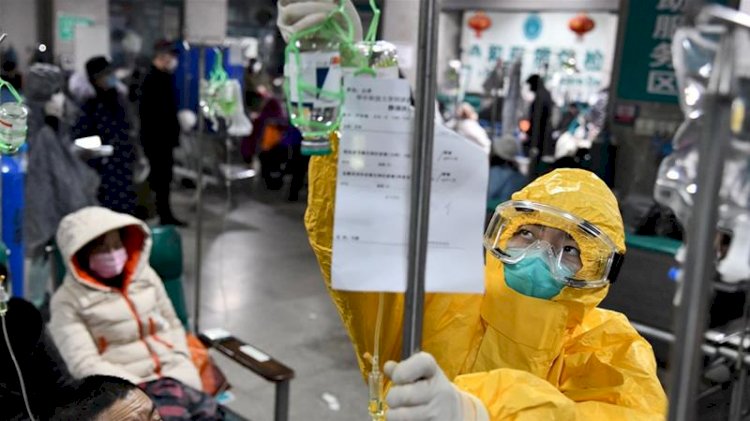Asia's stock markets rebound, but virus fears not cured yet

Shares steadied across Asia on Wednesday with nearly all large stock indexes nudging higher on hopes of additional stimulus to lessen the economic effects of a coronavirus outbreak, despite the growing death toll and spread of the illness.
Shares in China rose 0.5 percent while stocks in Hong Kong climbed 0.42 percent in early trading.
MSCI's broadest index of Asia-Pacific shares outside Japan was up 0.36 percent.
Australian shares were up 0.37 percent, buoyed by gains in the mining sector. Japan's Nikkei stock index rose 0.99 percent, supported by shares of industrial equipment makers.
"Looks like bargain hunting is going to be the order of the day again on Wednesday despite more confirmed cases of (the 2019 coronavirus)," ING analysts Prakash Sakpal and Nicholas Mapa wrote in a morning note.
"Investors could take some direction from China services data and regional central bank meetings for the week, though gains will likely be capped with analysts still gauging the economic impact of the virus," they added.
Many investors argue that any slowdown will be temporary and that Chinese policy steps are reason to remain optimistic about the growth outlook, but so far public health officials have not found a way to stop the spread of the virus inside and outside of China.
"We're going to have a strong day in Asia, but whether this is the reversal of a downtrend remains to be seen," said Michael McCarthy, chief market strategist at CMC Markets in Sydney.
"Oil investors remain pessimistic about demand disruptions, but equity investors, especially overseas, are discounting the impact of the virus."
The onshore yuan was little changed versus the United States dollar, highlighting the cautious mood as investors monitor the effects of the virus.
The safe-haven yen and Swiss franc nursed losses versus the US dollar. Oil prices bounced in Asia on hopes for more output cuts from the Organisation of Petroleum Exporting Countries (OPEC) and its allies, but sentiment remained weak on worries about a long-term dent in demand for energy and other commodities.
China and other countries have imposed travel restrictions to try to contain a new virus that emerged in the central Chinese city of Wuhan late last year, slamming the breaks on manufacturing and tourism in the world's second-largest economy.
US stock futures fell 0.23 percent in Asia on Wednesday. The S&P 500 rose 1.5 percent on Tuesday and the tech-heavy Nasdaq rose to a record high.
The People's Bank of China (PBOC) is likely to lower its key lending rate - the loan prime rate - on February 20, and cut banks' reserve requirement ratios in the coming weeks, policy sources told Reuters news agency.
The PBOC has already pumped hundreds of billions of dollars into the financial system this week. This helped Chinese stocks stabilise on Tuesday following a rout that wiped out approximately $700bn in market capitalisation on Monday when Chinese markets opened after an extended holiday.
The virus has already killed nearly 500 people. Japan's health minister said on Wednesday that 10 people on a cruise ship at the port of Yokohama have tested positive for the new virus.
In the onshore market, the yuan held steady at 6.9970 per US dollar after rising 0.3 percent on Tuesday.
The yen traded at 109.48 per US dollar, close to the lowest in almost a week. The Swiss franc held steady at 0.9696 versus the US dollar following a 0.3 percent decline on Tuesday.Benchmark 10-year US Treasury yields edged up to 1.6026 percent in a sign of receding concern about the coronavirus.
US crude ticked up 1.27 percent to $50.24 a barrel, and Brent crude rose to 0.74 percent to $54.63 per barrel in recovery from declines on Tuesday.
OPEC and its allies are considering cutting oil output by a further 500,000 barrels per day (bpd) due to the effect on oil demand from the coronavirus, sources said.
Brent futures have lost about 16 percent since China confirmed on January 21 that human-to-human infection of the previously unknown virus is possible, which kicked off a rout in global markets as the number of cases and the death toll rose.
